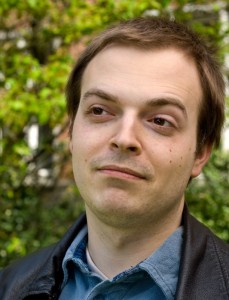The development and application of diffusion models
Joachim Vandekerckhove PhD
Project at: Department of Psychology, K.U.Leuven, Belgium
Supervisor: Prof. dr Francis Tuerlincks
Project running from: 1 October 2005 – 1 October 2009
Summary:
Diffusion models are a class of stochastic time-series models which can be used to model time-continuous movement through an N-dimensional space. They are a category of random walk models, but with added features such as biased starting points, drift rates, boundaries and concentration points. Such features make these models flexible tools for studying the time course of complex processes.
For example, many experiments in psychology yield both reaction time and binary response data (accuracy) simultaneously. These data do not conform to the assumptions made by classical statistical models (i.e. they are not normally distributed and not independent). By equipping a unidimensional diffusion model with two boundaries, the model’s boundary crossings and first passage times can be linked to responses and reaction times, respectively, in a natural fashion.
For a second example, a diffusion model could be used to study an individual’s discretized changes incore affect – a 2-D psychological construct which describes a person’s ever-changing affective state.
By examining the best fitting parameters of this diffusion model to such data and linking them to experimental variables or measured covariates, a more sensitive type of analysis may be obtained. We aim to find solutions to the problem of prohibitive computational complexity of this fitting process, for example by simplifying model formulations and reducing dimensionality.
Date of defence: 15 May 2009
Title of thesis: Extensions and applications of the diffusion model for two-choice response times

